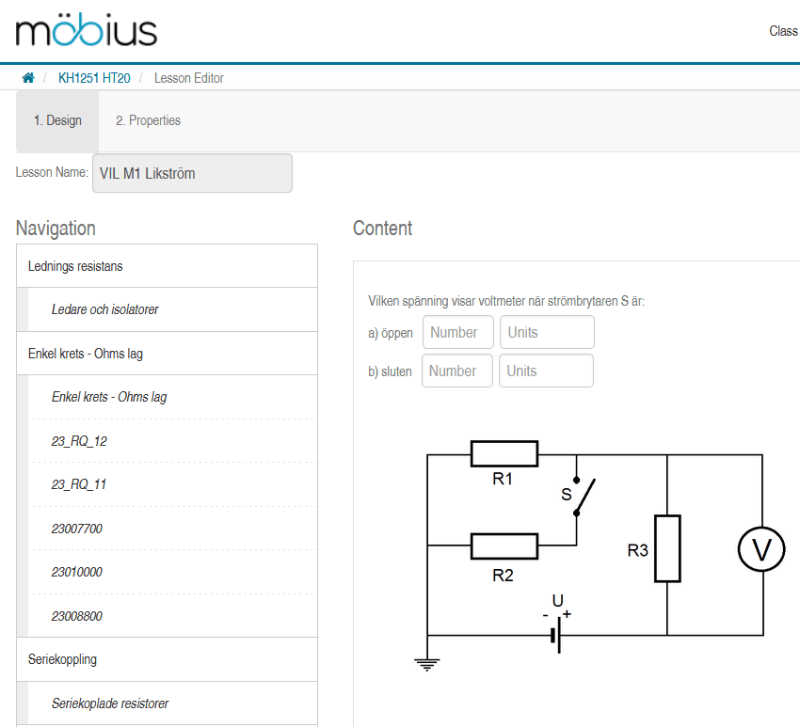Electrical circuits: DC, AC.
Electrical measurements: Measureing with multimeter (analog and digital) and oscilloscope. Use of LabVIEW
Analog cirquits for signalcondition of sensorsignals before ADC (analog to digital conversion). Examples of sensors for mussuaring of temperature, force and strain.
Electrical motordrives: Single- and three- phase systems. Theory and properties of DC machines and AC machines. Principles for speedcontrol of electrical machines.
Design of control circuits. On-Off control. PID regulator. Sensors, detectors and other measurement & control components. How computers are used to aid instrumentation, control and regulation.
